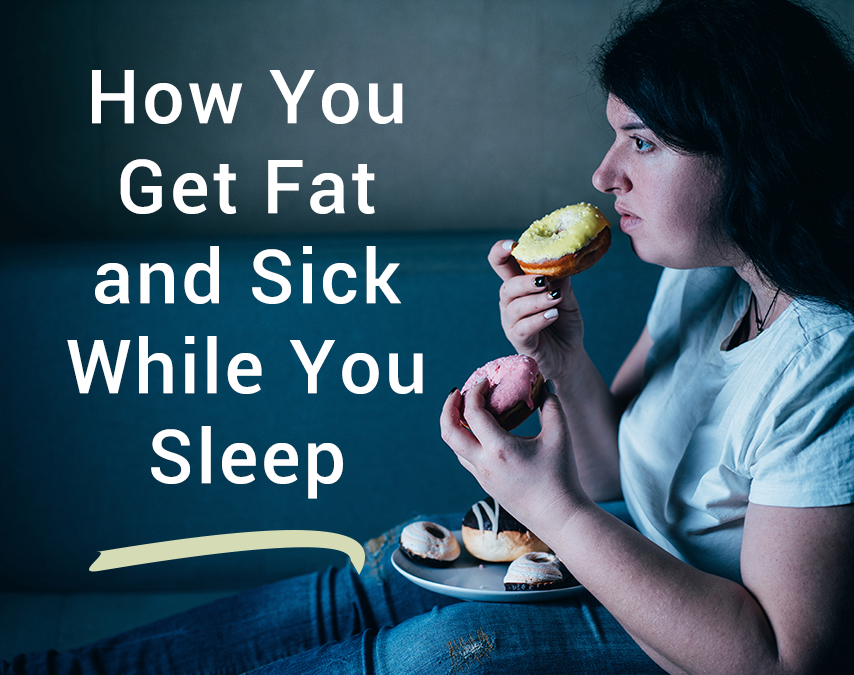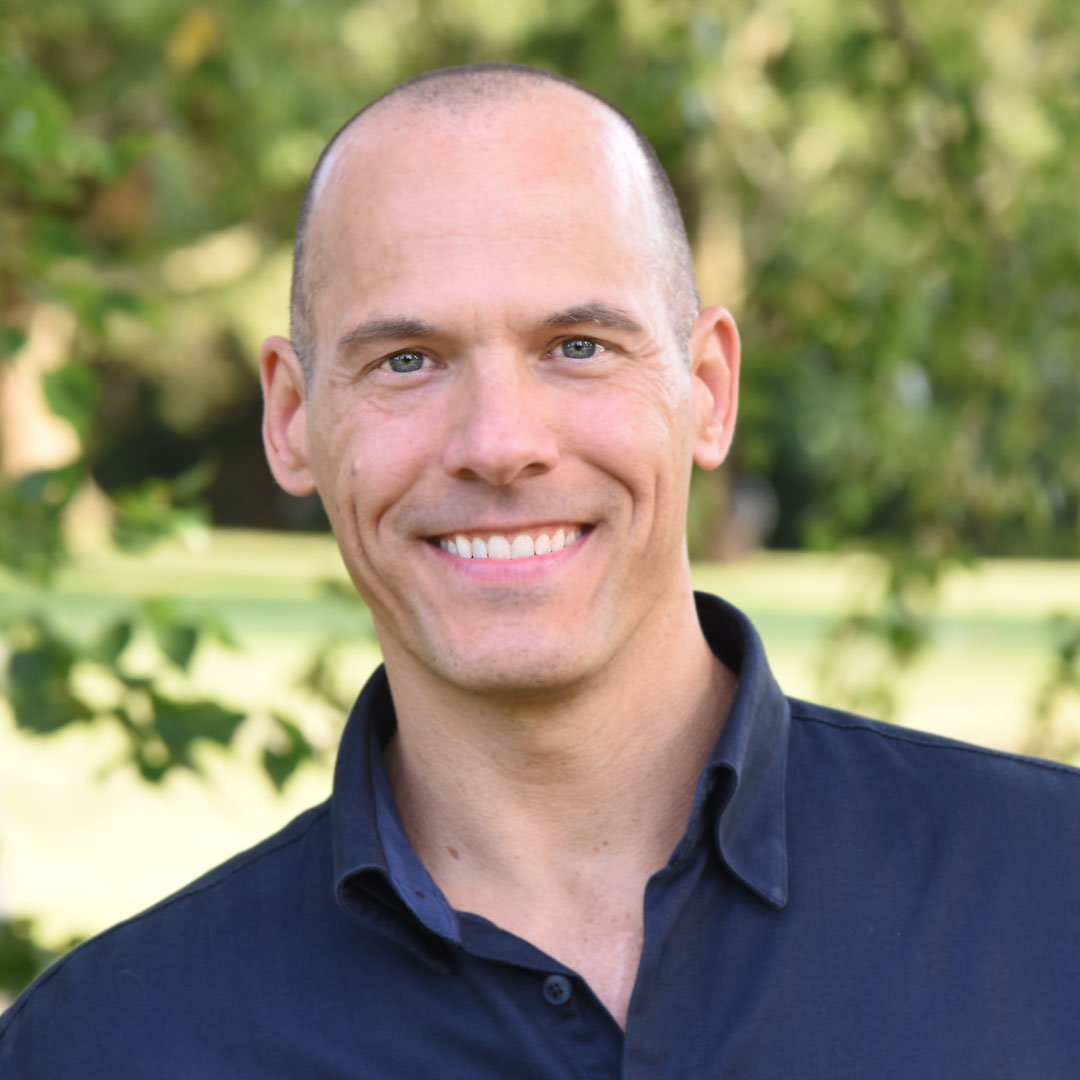How Eating Carbs Late Can Make You Fat While You Sleep
Countless people continue to struggle with their weight (body fat).
I think you can agree with me that drug companies prey on individuals who are overweight through various tactics and strategies.
These include targeted advertising campaigns highlighting the “potential” benefits of their weight loss drugs and other dangerous procedures.
In addition to the emotional appeal of showing testimonials that create a sense of urgency and hope, they exaggerate the effectiveness of their drugs and procedures making people believe these drugs and procedures will produce quick weight loss results.
Drug companies also minimize and downplay the risks and side effects associated with their meds and procedures.
[Wait until I reveal the true mechanisms behind the new popular weight loss drug—ozempic. You’ll think twice, three times, and four times before you decide to get this injection.]
But yet, the most simple strategy for losing weight—fat—is never discussed, never mentioned.
Are you ready to hear it… rather read it?
These basic principles are woven into our physiology like XX chromosomes in a woman and XY chromosomes in a man.
By going against these simple metabolic principles, you not only make fat loss difficult if not impossible, but you may be in a state of emotional frustration and angst wondering why you can’t lose “weight.”
So here are 2 basic principles for managing your body composition and getting rid of body fat.
—Eat when the sun is out, not when the moon is out
—Refrain from eating high-calorie foods and carbs at the end of your day.
Sounds easy right?
Why?
There is a hidden danger when you eat high-calorie, nutrient-absent foods at night when the moon is out.
Before I explain why, you should know there are several hormones involved with increasing your body fat while you sleep.
The three hormones are:
Insulin
- Role: Insulin is released by the pancreas in response to elevated blood glucose levels after consuming carbohydrates. Its primary function is to facilitate the uptake of glucose by cells for energy or storage as glycogen and fat.
Somatostatin
- Role: Somatostatin, also known as growth hormone-inhibiting hormone (GHIH), is secreted by the hypothalamus, pancreas, and gastrointestinal tract. It inhibits the release of several other hormones, including insulin and growth hormone.
Growth Hormone (GH)
- Role: Growth hormone is secreted by the pituitary gland, primarily during deep sleep, and plays a crucial role in growth, metabolism, and fat burning. GH promotes the utilization of fat for energy and inhibits insulin’s action on fat storage.
Would you agree the biggest meal of the day for most people is dinner? Dinner is also usually eaten several hours before bed.
Typically . . . I say typically . . . dinner for many people is a high-carb meal, including a couple of alcoholic drinks and some kind of bread, pasta, or rice. Along with those carbs, they have a small piece of protein, e.g., fish, chicken, or steak, followed by more carbs—a piece of cake or pie, or a dish of ice cream.
What did you eat for dinner last night?
The mechanism behind body fat storage after eating carbs at night.
After eating high-calorie foods or a lot of carbohydrates, there is a flood of glucose in the blood.
With the resulting rise in blood sugar, insulin comes rushing out of the pancreas to deal with the sugar, storing it in the liver and muscles, then stuffing the excess into fat cells.
Worse yet, this is happening at night, when we’re winding down and getting ready for bed.
Here’s the interesting part.
While you sleep, insulin stores the unused calories as fat around your waist, which then buries your abdominal muscles (your abs). Eating lots of calories at night will make you fat – A high-carb meal will cause the release of the hormones insulin and somatostatin, also known as a growth hormone-inhibiting hormone.
Growth hormone is secreted from the brain about an hour after falling asleep. Its function in the body is to build and repair muscle tissue, stimulate the immune system, and burn fat.
Yes, you read that correctly.
Your body will use body fat for fuel during sleep as long as you have growth hormone.
So, if you eat high-calorie foods and carbs at night, you increase somatostatin, shut down the production of growth hormone, and halt fat burning!

One more point here: Unlike other animals, we are not meant to eat and then sleep. We are built to eat while active in order to ensure that we burn what we eat. Therefore, we should eat frequently throughout the day while active—while the sun shines—not while sleeping . . . when the moon is out.
Make sense?
Burning fat isn’t as complicated as some people think it is. If you continue to eat a nutrient-absent, high-calorie dinner, you will ruin your fat-loss efforts.
If you’re not storing fat while you sleep, you’re burning it—simple.
Eating carbs or high-calorie foods late will not only make you fat, it can ruin your health. As stated before, carbs cause the release of insulin—the hormone that regulates blood sugar and the storage of fat.
Eating high-calorie foods and carbs at night will not only make you gain unwanted body fat, but you can also make yourself sick with other chronic health issues.
Remember insulin?
High insulin is also a driver of cancer, atherosclerosis, diabetes, sleep apnea, internal inflammation, and immune dysfunction.
Pumping up your insulin before bed will also cause serious chaos with your other hormones like testosterone, estrogen, and progesterone.
These altered hormone levels can cause poor sleep, moodiness, night sweats, low libido, sugar cravings, impotence, cold hands and feet . . . and that’s just the start.
Simply, if you have to eat in the evening, choose green and rainbow-colored vegetables with a small piece of protein.
This will have little effect on the hormones that store fat while you’re snoozing, keep down inflammation, and keep you healthy.
But wait, there’s more.
Thorner, M. O., Rivier, J., Spiess, J., Vale, W., & Vance, M. L. (1984). Somatostatin: physiology, pharmacology, and clinical applications. Journal of Clinical Endocrinology & Metabolism, 59(4), 761-766. DOI: 10.1210/jcem-59-4-761.
Yde, H., & Hüttel, M. S. (1985). Growth hormone and insulin antagonism: its metabolic and physiological significance. Hormone Research in Paediatrics, 22(1-2), 34-42. DOI: 10.1159/000180159.
Hibi, M., Masumoto, A., Naito, Y., et al. (2013). Nighttime snacking reduces whole body fat oxidation and increases LDL cholesterol in healthy young women. American Journal of Physiology-Endocrinology and Metabolism, 304(2), E192-E198. DOI: 10.1152/ajpendo.00421.2012.
Patel, Y. C. (1999). Somatostatin and its receptor family. Frontiers in Neuroendocrinology, 20(3), 157-198. DOI: 10.1006/frne.1999.0183.
Van Cauter, E., & Plat, L. (1996). Physiology of growth hormone secretion during sleep. Journal of Pediatrics, 128(5 Pt 2), S32-S37. DOI: 10.1016/s0022-3476(96)90007-4.
Knutson, K. L., Van Cauter, E., Rathouz, P. J., et al. (2007). Association between sleep and blood pressure in midlife: the CARDIA sleep study. Archives of Internal Medicine, 167(19), 2101-2108. DOI: 10.1001/archinte.167.19.2101.
Bo, S., Musso, G., Beccuti, G., et al. (2014). Consuming more of daily caloric intake at dinner predisposes to obesity. A 6-year population-based prospective cohort study. PLoS ONE, 9(9), e108467. DOI: 10.1371/journal.pone.0108467.
Arble, D. M., Bass, J., Laposky, A. D., et al. (2009). Circadian timing of food intake contributes to weight gain. Obesity, 17(11), 2100-2102. DOI: 10.1038/oby.2009.264.


Thank you for breaking this down! I have been at a loss as to what is healthy to eat in the evening, and it seems like every book or article has a different idea of what is healthiest to do, but this makes sense! I am 44 years old, and have noticed a gradual increase in fat around my waistline, and have had a hard time getting it off, since I wasn’t sure what to do. I recently had a health scare, which has motivated me even more to be as healthy as possible. This is a great start! Thank you!
Toni there are different reasons for increased fat in the mid-section. Cortisol, high estrogen/low progesterone, high insulin and blood sugar can all cause belly fat. The first place to start getting rid of it is to eliminate carbs at night. Second, eat most of the your food when the sun is out now when the moon is out. Eat when your active, not when your winding down when your body is using less fuel for sleep. If you follow simple biological principles, your mid section will flatten out.
I eat a lot of popcorn at night, air popped, that i top up with flax seed oil and nutritional yeast, a bit of salt and fresh ground pepper,sometimes i add some cayenne or a splash of apple cider vinegar…its about the only grain/starch i eat. I have done that for years, and am lean, have no belly fat at all, and am 47 years old. Can i keep doing this?
There is nothing wrong with a little popcorn while watching The Avengers or The Game of Thrones. Popcorn is a high-glycemic food that will elevate your blood sugar and insulin. While this is a normal response, if you eat popcorn often and at night, you may be setting the stage for long-term problems with blood sugar, and your hormones.
I am interested to learn your view on someone who is vegan with MS.
I believe low vitamin D a big culprit for MS.
Hello, we are programmed to be omnivores. Those that choose to go vegan——completely vegan——are deprived of vital nutrients including Vitamin B12, Zinc, Iron, vitamin D, essential fatty acids and others. Studies show those who develop MS have high levels of a protein called zonulin. This compound is created by the interaction of gut bacteria and gluten. Yes gluten, a protein found in many foods that consumed through a vegan diet. https://pubmed.ncbi.nlm.nih.gov/9011463/ Autoimmune issues develop from multiple factors. It has been shown that low vitamin D status was an early predictor of MS activity and progression https://pubmed.ncbi.nlm.nih.gov/24445558/ Again, there is not enough data to say low vitamin D is the cause of MS, low vitamin D is a predictor of the severity MS
Is there any type of rice considered healthy and safe?
If I go for rice, I choose brown rice, black rice, and/or wild rice, depending on what Im eating with the rice. Brown, black, wild are all loaded with fiber and antioxidants. If you eat rice, or want to, I’d suggest either of these three. Stay away from white rice is processed whereby many of its nutrients are stripped away. Hope that helps in your decisions.